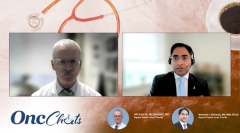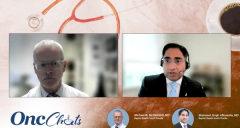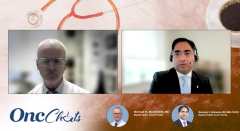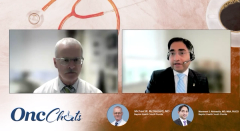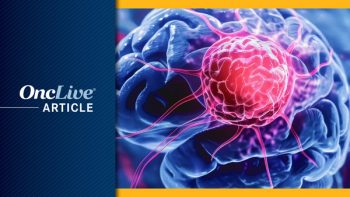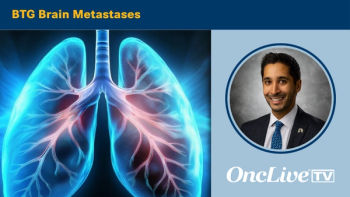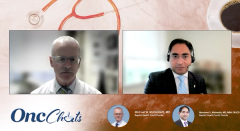
Examining LIFU–Aided Liquid Biopsy in Glioblastoma: Excitement Surrounding Focused Ultrasound Waves
In this last episode of OncChats: Examining LIFU–Aided Liquid Biopsy in Glioblastoma, Manmeet Singh Ahluwalia, MD, MBA, FASCO, and Michael W. McDermott, MD, shed light on the excitement surrounding the use of low-intensity focused ultrasound in cancer and other conditions.
Episodes in this series

In this last episode of OncChats: Examining LIFU–Aided Liquid Biopsy in Glioblastoma, Manmeet Singh Ahluwalia, MD, MBA, FASCO, and Michael W. McDermott, MD, both of Baptist Health South Florida, shed light on the excitement surrounding the use of low-intensity focused ultrasound (LIFU) in cancer and other conditions.
Ahluwalia: Mike, you spoke very eloquently about the work you have done in helping these patients—whether it’s in the tremor space, the malignant glioma space, the glioblastoma space, [or even] more intriguingly, in the brain metastases space. What excites you most about all these categories as you approach patients for these techniques?
McDermott: think it offers the patients an opportunity to contribute to medical science and new information that may help their fellow man in the future. Outside of the world of oncology, the use in treating patients with Alzheimer disease I think is particularly exciting because currently, we have no effective treatment.
The fact that we can open the blood–brain barrier with this type of technology even includes the possibility that for patients [with Alzheimer disease], we may combine LIFU with new medications to see whether we can get a better response at stabilizing the disease, or reversing some of their cognitive difficulties, which would be a great improvement for the patients’ quality of life. I think there are many aspects to this kind of treatment which make it exciting— using focused ultrasound waves, which is new, novel, [and] for the patients, it’s painless. I think it’s a wonderful advance for medicine in several subspecialty areas.
Ahluwalia: Dr McDermott [spoke] to the premise of scientific research, which excites our patients when they seek these treatments. But also, this gives us an opportunity to collaborate with our colleagues and researchers, not only in the state of Florida, but [throughout the] United States and across the globe. Thank you so much, Dr McDermott, for sharing [these] exciting advancements that you’re [contributing to] as a pioneer in this field. [It’s exciting] to usher in an era of new opportunities for our patients. Thank you.


